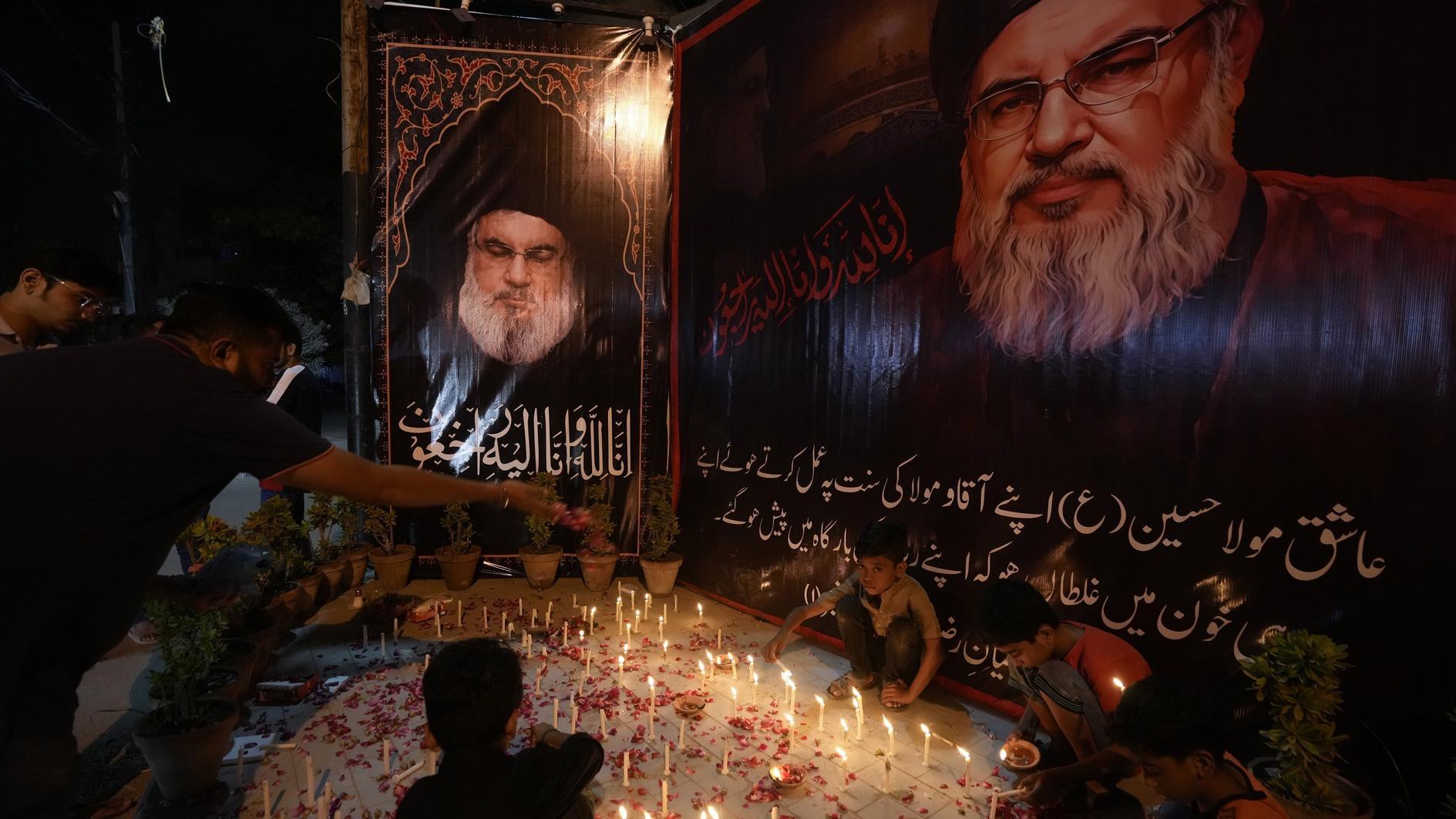
Israel's foes vowed revenge on Saturday after Iran-backed Lebanese militant group Hezbollah announced its longtime leader Hassan Nasrallah was killed in an Israeli air strike on Beirut suburbs.
World powers also warned of the killing's potential repercussions, with the spectre of all-out war looming over the Middle East.
President Recep Tayyip Erdoğan, whose country maintains diplomatic relations with Israel but who has been a sharp critic of its offensive in Gaza, said on X that Lebanon was being subjected to a "genocide", without referring directly to Nasrallah.
Iranian Vice President Mohammad Reza Aref warned Israel that Nasrallah's death would "bring about their destruction", Iran's ISNA news agency quoted him as saying.
The foreign ministry of Iran, which finances and arms Hezbollah, said Nasrallah's work will continue after his death. "His sacred goal will be realised in the liberation of Quds (Jerusalem), God willing," foreign ministry spokesman Nasser Kanani posted on X.
Supreme leader Ayatollah Ali Khamenei announced five days of public mourning.
Russia's foreign ministry said "we decisively condemn the latest political murder carried out by Israel" and urged it to "immediately cease military action" in Lebanon.
Israel would "bear full responsibility" for the "tragic" consequences the killing could bring to the region, the ministry added in a statement.
French Foreign Minister Jean-Noel Barrot demanded Israel "immediately stop its strikes in Lebanon" and said it was opposed to any ground operation in the country.
France also "calls on other actors, notably Hezbollah and Iran, to abstain from any action that could lead to additional destabilisation and regional conflagration", the foreign ministry said in a statement.
German Foreign Minister Annalena Baerbock told ARD television that the killing "threatens destabilisation for the whole of Lebanon", which "is in no way in Israel's security interest".
U.N. chief Antonio Guterres said he was "gravely concerned by the dramatic escalation of events in Beirut in the last 24 hours".
Palestinian militant group Hamas, whose unprecedented October 7 attack on Israel sparked the devastating war in Gaza that drew in fellow Iran-backed groups including Hezbollah, called Nasrallah's killing "a cowardly terrorist act".
"We condemn in the strongest terms this barbaric Zionist aggression and targeting of residential buildings," Hamas said in a statement.
Palestinian president Mahmud Abbas offered his "deep condolences" to Lebanon for the deaths of Nasrallah and civilians, who "fell as a result of the brutal Israeli aggression", according to a statement from his office.
Iraqi Prime Minister Mohammed Shia al-Sudani condemned in a statement Israel's "shameful attack", calling it "a crime that shows the Zionist entity has crossed all the red lines".
Israel "confirms through this despicable aggression, once again... its barbarism and wanton disregard for all international standards and laws", said a Syrian foreign ministry statement carried by state news agency SANA.
The Huthis, who have been firing on ships in the Red Sea in solidarity with Hamas, said in a statement that "the martyrdom of Hassan Nasrallah will increase the flame of sacrifice, the heat of enthusiasm, the strength of resolve" against Israel.